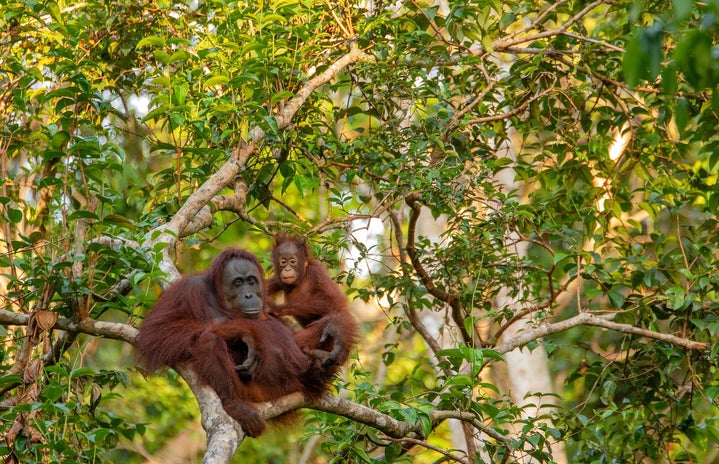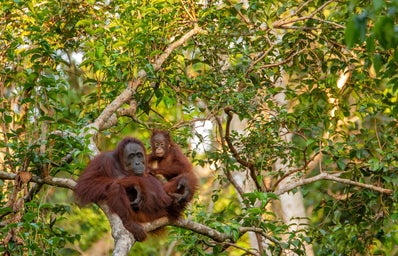Last month, national treasure David Attenborough, released his latest documentary, A Life on Our Planet on Netflix. For decades, David Attenborough has taken us from the jungle to the desert, creating the world’s best natural history films. But A Life on Our Planet, is a different kind of nature programme. Instead of jaw-dropping chase sequences, the ‘witness statement’ feels grief-stricken. Whilst Attenborough reflects on the past, it is the present figure, an old man who swallows his tears, that holds the most weight. The film holds nothing back; alongside brutal statistics painted on screen we witness heart wrenching “before” and “after” footage. Where we once saw orangutans swinging in the rainforest, there is now a solitary orangutan attempting to clamber up a branchless tree trunk.
Attenborough is here to deliver a heavy warning that time is running out for our planet, which he largely attributes to the impact we as humans have had on the planet’s natural biodiversity. The documentary has been immensely popular, with Netflix reporting nearly 17 million views since its release, but some viewers have criticised the documentary, claiming Attenborough focuses too much on overpopulation, a message which could enable Eco-fascists*. For the most part of the documentary, Attenborough focuses on the increasing population, claiming that ‘humans have overrun the world’. As we watch the population figures increase from 2.3 billion in 1937 to 7.8 billion in 2020, we simultaneously witness the increasing number of carbon emissions and decreasing percentage of remaining wildlife. Essentially, he is saying that larger populations have negatively impacted the environment, later stating that “every other species on Earth reaches a maximum population after a time – the number that can be sustained on (the) natural resources”.
The overpopulation myth is racist and reeks of white supremacy. Overpopulation is often the scapegoat for environmental issues and poverty; the idea being that if there were less mouths to feed, then there would be more food to go around. But fast-growing populations have a much lower rate of carbon emissions than the richer, slower growing populations in the global north. Additionally, it was discovered that in these areas, the richest 1% were found to have contributed twice as much carbon to the atmosphere compared to the poorest 50%. Thus, focusing on population growth rate whilst refusing to acknowledge the impact of capitalism takes the blame away from western society and puts it once again on to the south.
Overpopulation is not the biggest contributor to global warming; Attenborough touches on this during the documentary, “our banks… investing in fossil fuels when these are the things that are jeopardizing our future” whereby he, albeit briefly, acknowledges the capitalist exploitation of the environment. Following the release of A Life on Our Planet, Sir David also spoke out against capitalism in an interview with BBC Radio 5 Live; where he discussed western cultures as being unsustainable and a major contributor to climate change.
Whilst it would be unfair to brand Sir David Attenborough an eco-fascist, the focus he places on overpopulation within this documentary and his other work could unintentionally encourage such ideas. As a highly revered and influential public figure for the environmental movement, he has a responsibility to consider all causes at the root of the climate crisis and promote a holistic message.
*Eco-fascism is an approach to tackling environmental problems using fascist policies such as population control to reduce human impact on the planet. It has been used to justify political agendas that discriminate against certain races and cultures, such as eugenics and sterilisation.



